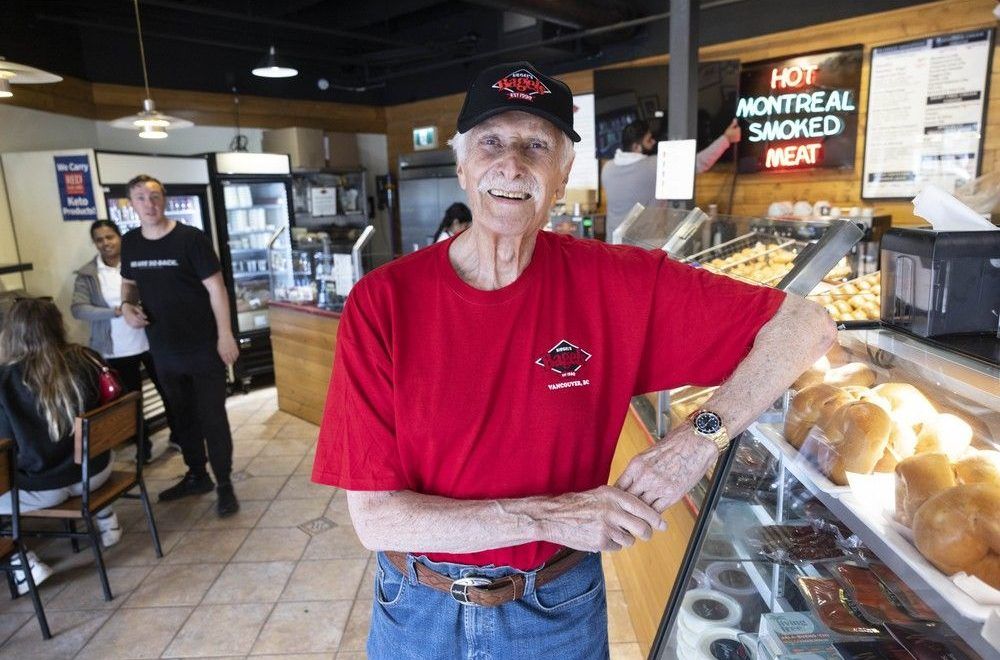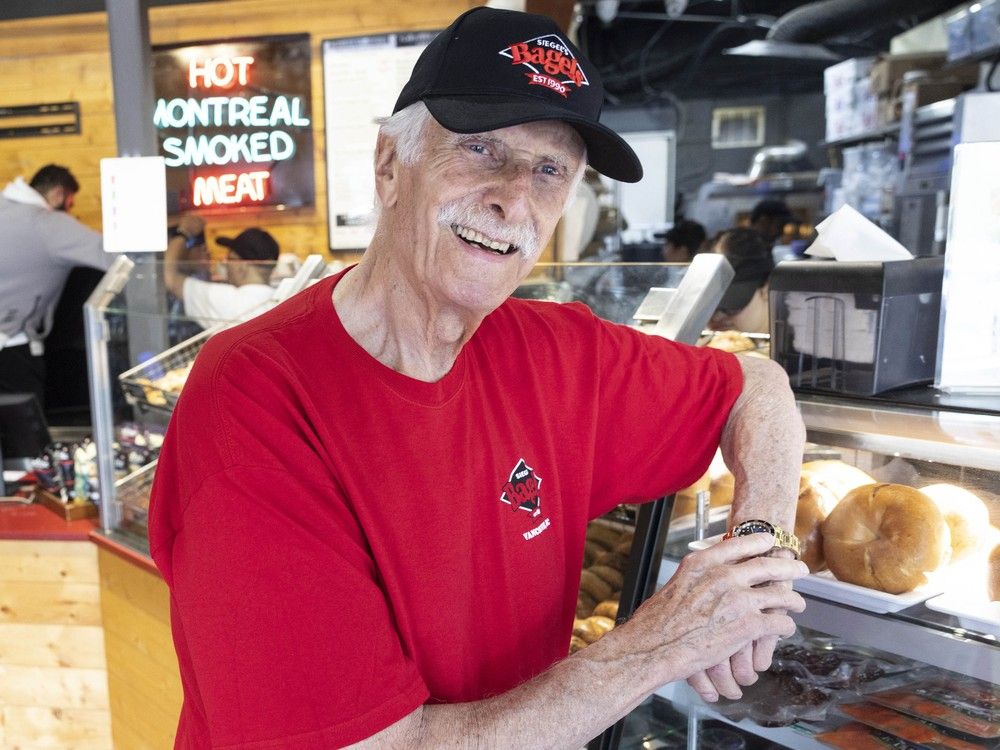
When Joel Siegel moved to Vancouver from Montreal in 1974, he quickly realized something was amiss: there were no Montreal-style bagels.
“All they had were like buns with a hole in them that came from Safeway,” he recalls.
A few years later, he was “between things” career-wise and decided to open up his own Montreal-style bagel shop in Kitsilano. But Siegel’s Bagels took awhile to catch on.
“I started by being on the sidewalk with a little box with bagels and cream cheese and giving them away when people walked by,” he said.
Over time, though, Siegel’s Bagels became a civic institution, the Vancouver equivalent of Schwarz’s Deli or St-Viateur Bagel in Montreal.
Besides offering nine different types of bagels, it’s where the masses get their Montreal smoked meat, rugelach pastry, and lox and cream cheese.
On May 16, the store marks 35 years in business — and it’s Siegel’s 89th birthday. His daughter Parise now runs the business, but Siegel will be coming in from his home on Salt Spring Island for a celebration at the original location, 1833 Cornwall Ave.
If you’ve been to Siegel’s, you may recognize Siegel as the tall, thin white-haired guy with the distinctive moustache.
He recently shaved it off — “I got sick of always having hair in my mouth” — but has reconsidered and is growing it back.
Siegel grew up in Dolbeau, Que., a small town near Lac-St-Jean, “way, way up north, where the road ends up, and where the train turned around.”

At 13, his family moved to Montreal. St-Viateur Bagel was nearby, and he started working there as a teenager. But he had other careers before he came back to bagels: He drove semi-trucks for seven years, then was in the clothing business.
Oh, and he was a race car driver.
“I raced with the SCCA, Sports Car Club of America,” he said. “I raced all over the U.S. and did some racing in Europe. I won six championships racing a Viper.”
But it had its drawbacks.
“One wreck I had at the Dallas motor speedway, I hit the wall,” he said. “I broke my neck. I was really lucky to get out of the car alive. And then the following year I raced, and I won two championships.”
Making bagels isn’t as dangerous, but did have its challenges when he started up. He went back to St-Viateur Bagel in Montreal to brush up on his bagel-making skills, but St-Viateur’s owner declined to partner in a Vancouver location.
“He told me to go and steal a couple of bakers from another bagel shop, which I did,” he said.
At his Vancouver store, he did everything traditionally to make an authentic Montreal style bagel, installing a wood burning brick oven, flipping the bagels with the long wooden shiva paddle, and rolling the dough the way they do in Montreal.
“The recipe is everything, and then the preparation, rolling them by hand,” he said. “Getting all the air out so they’re dense. And getting a good shine on them from the wood burning oven is really a big factor.”
Montreal bagels are quite different from bagels in other cities, such as New York.
“The recipe is different,” he explains. “They use what we call a sourdough type of method, which we don’t. New York bagels get harder much quicker, and I don’t especially like sourdough. It’s an acquired taste, I guess.”
Baking with wood is also a bit of an art, because you have to “bake from the seat of your pants.”
In a regular oven, he explains, you turn it on, put the bagels in, “and when the buzzer goes off, you take them out.”
Cooking with wood, “you have to pay attention to what you’re doing, because you have to turn them, get them off the long boards, then put them on the fire brick. And you have to have a method of rotating them in the oven.”
Smoked meat is also a Montreal specialty, different from the corned beef or pastrami you get in Jewish delis in other cities.
“It’s the same brisket, but it goes into a different preparation, where the smoked pieces goes into brine, into barrels,” said Siegel, who imports his smoked meat from Montreal. “It takes a week or two weeks for it to cure.”
He worked hard to make the store a success, chopping the wood himself for the oven.
“When we started, I did everything, I did the baking, I did the counter,” he said.
“But I said if I can convince half the people that live in Vancouver that came from Montreal to taste our bagels, I’ll make it. Eventually we got the Montrealers to come into my shop, and it grew from there.”